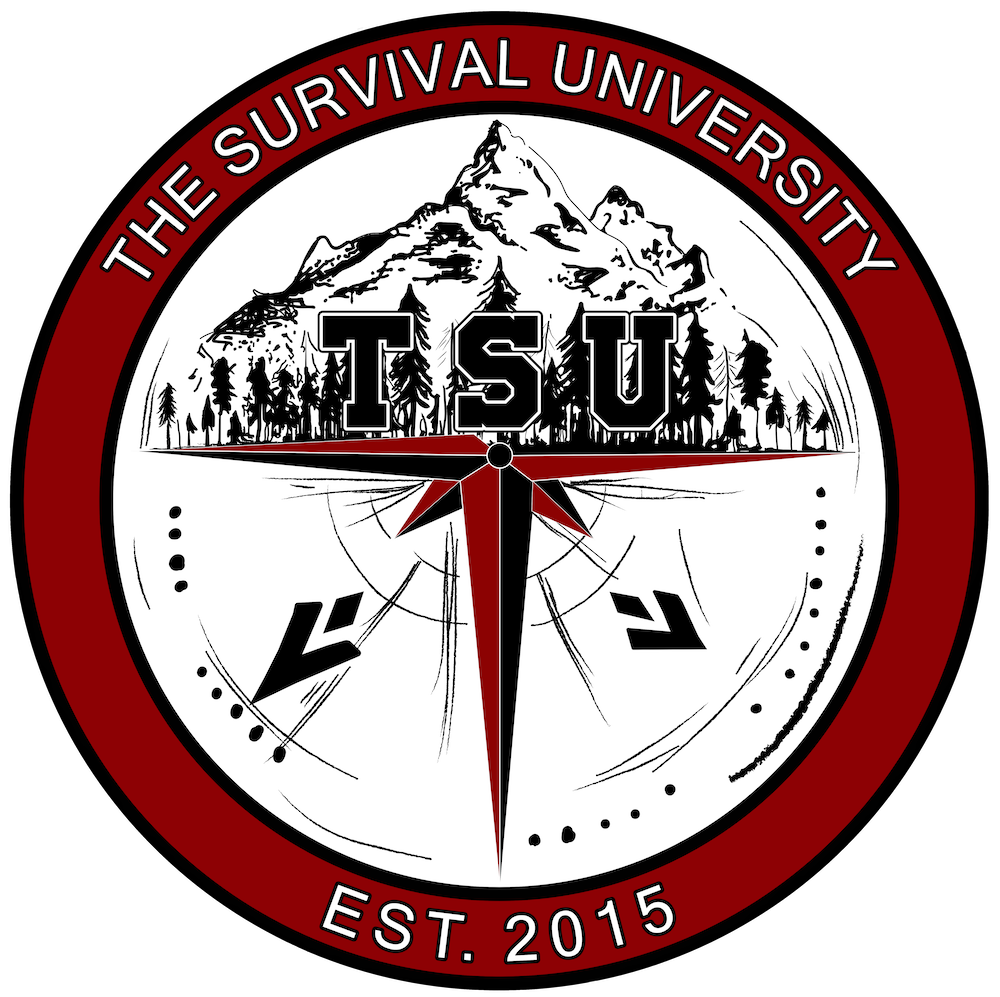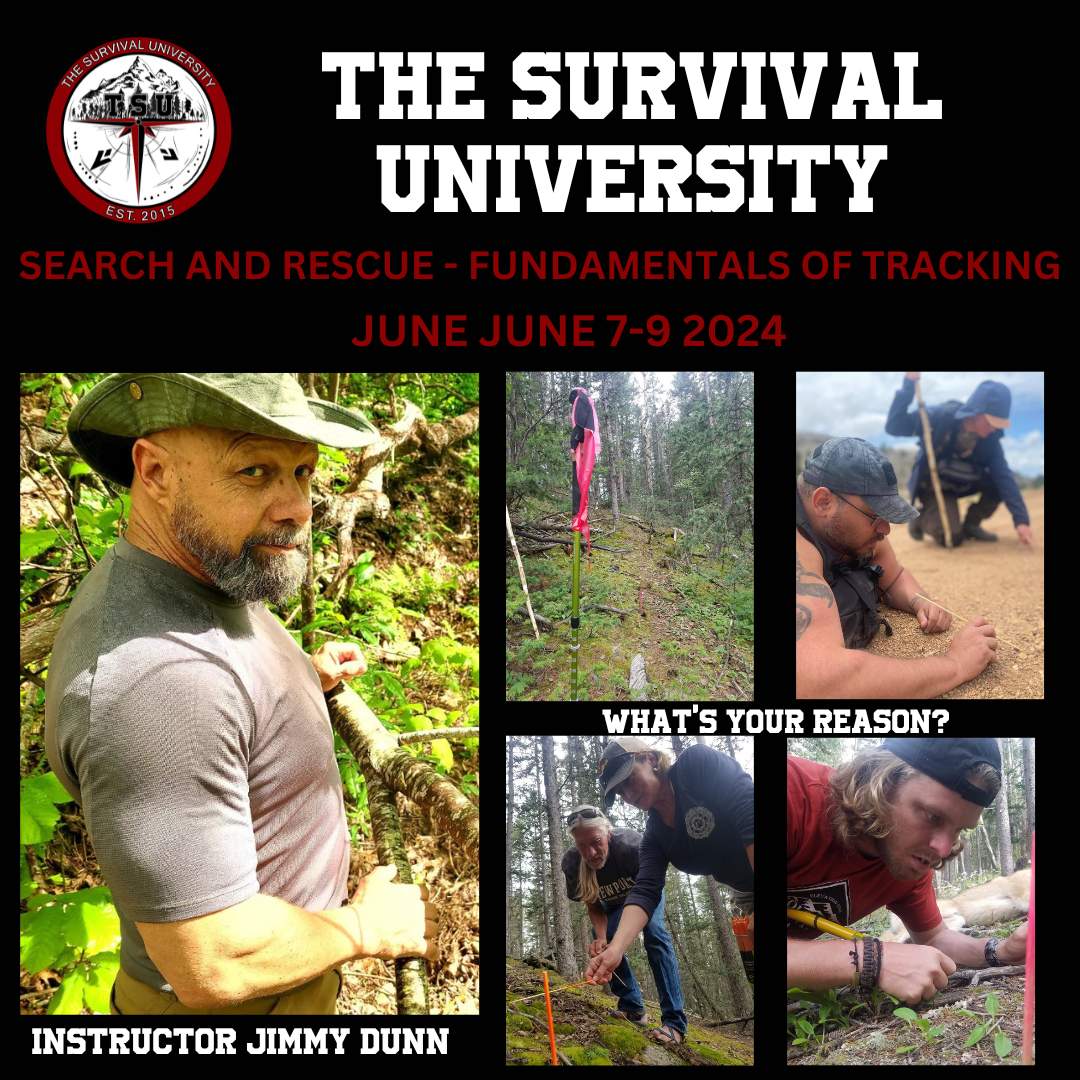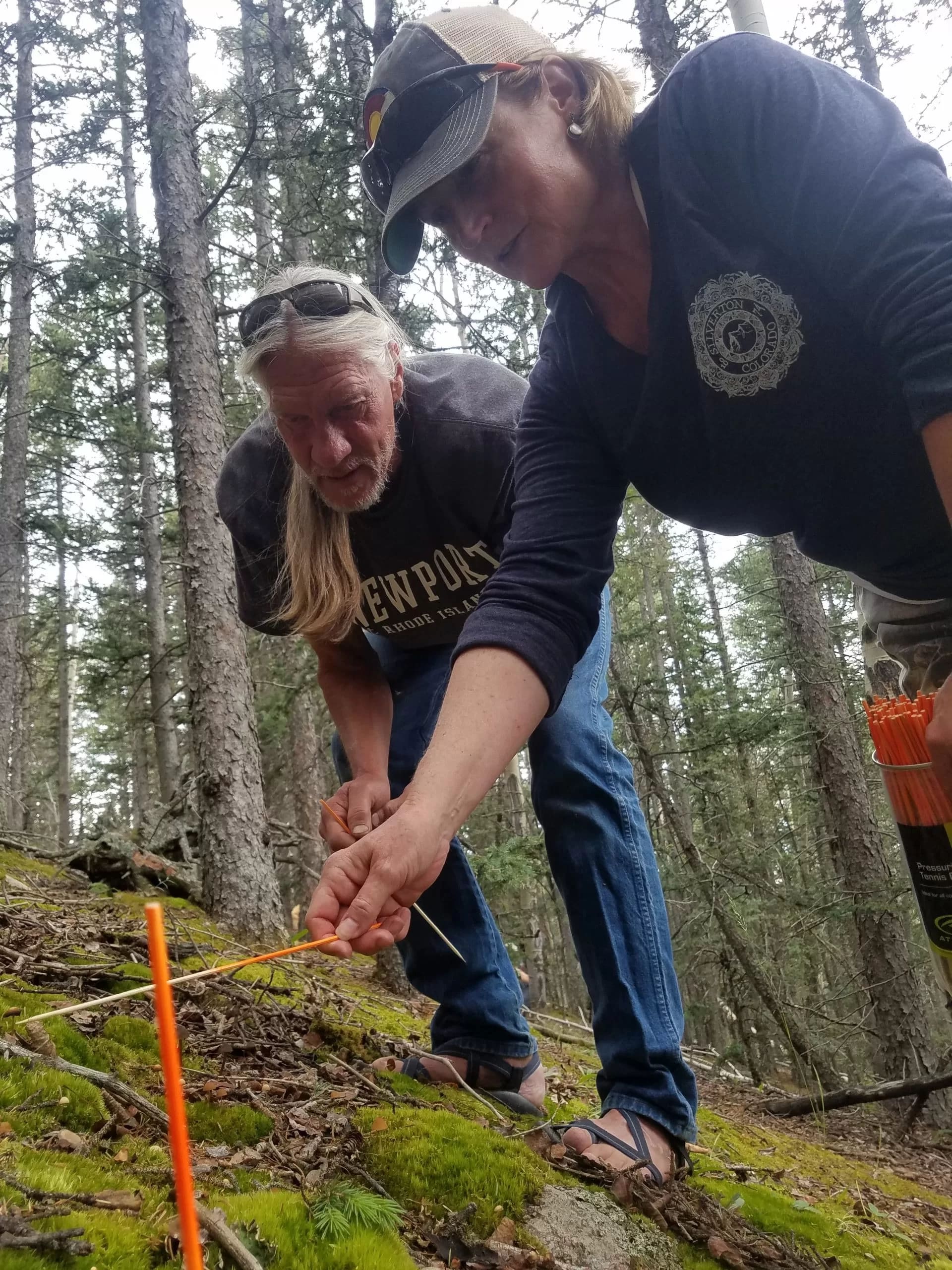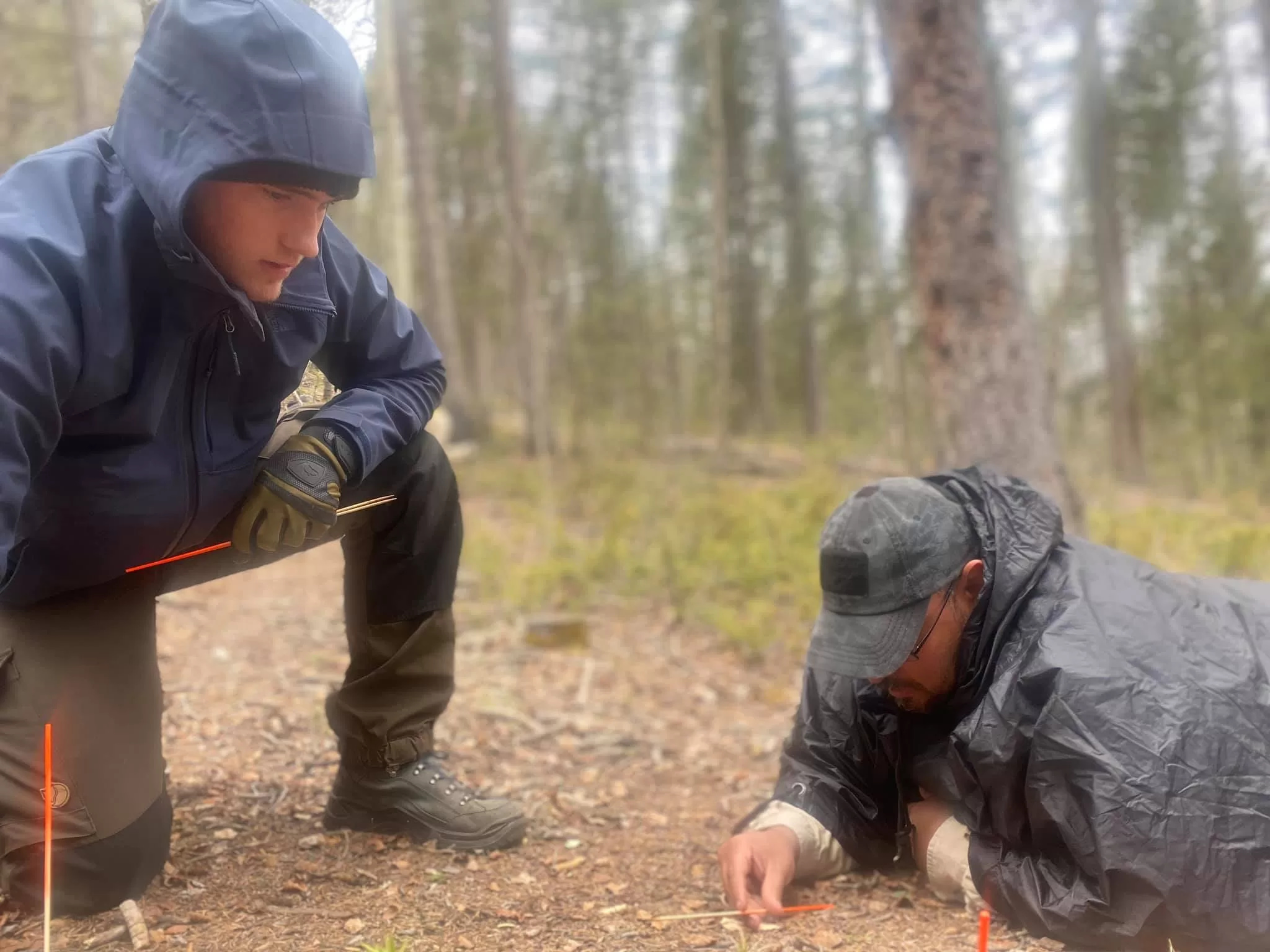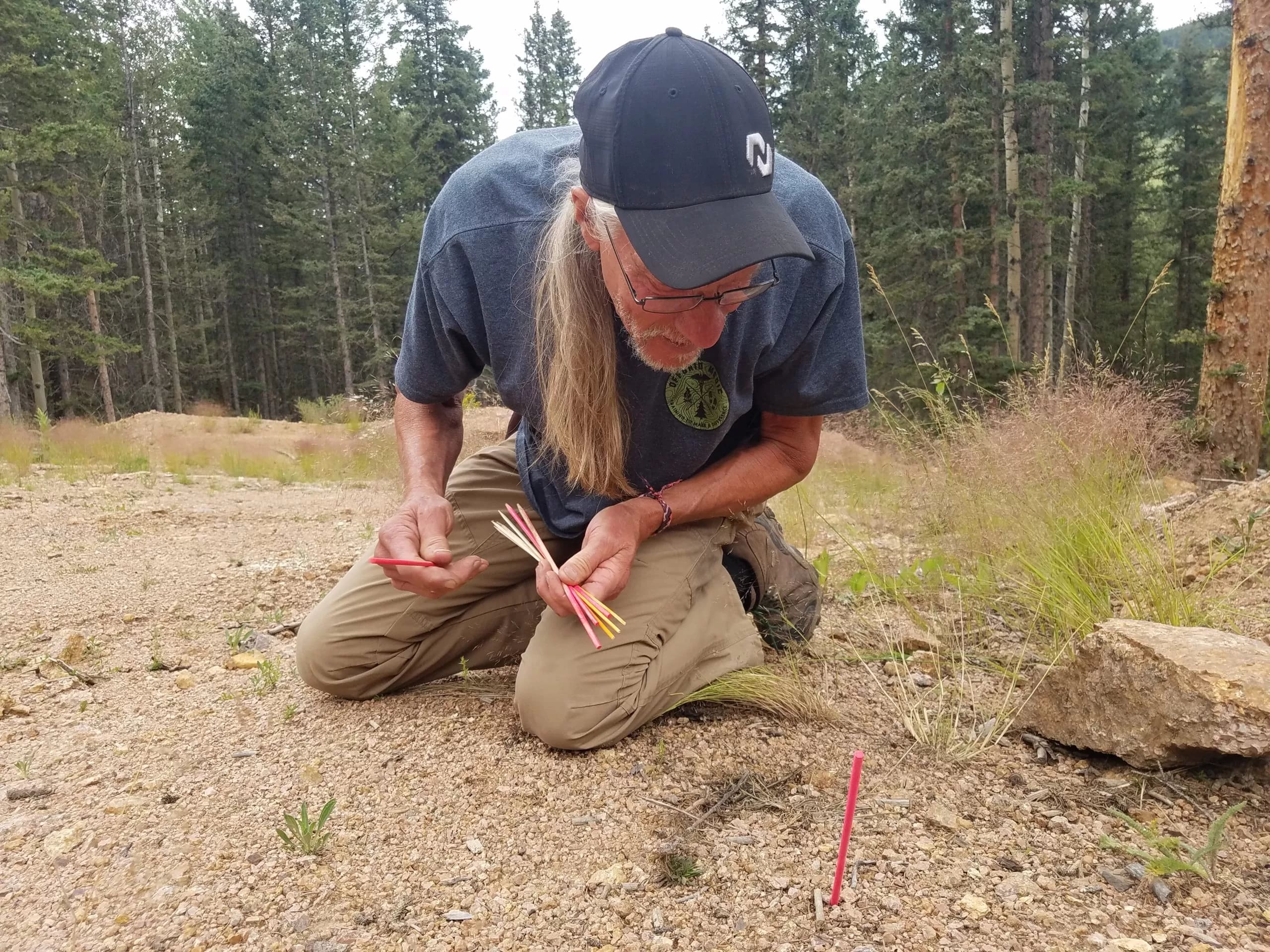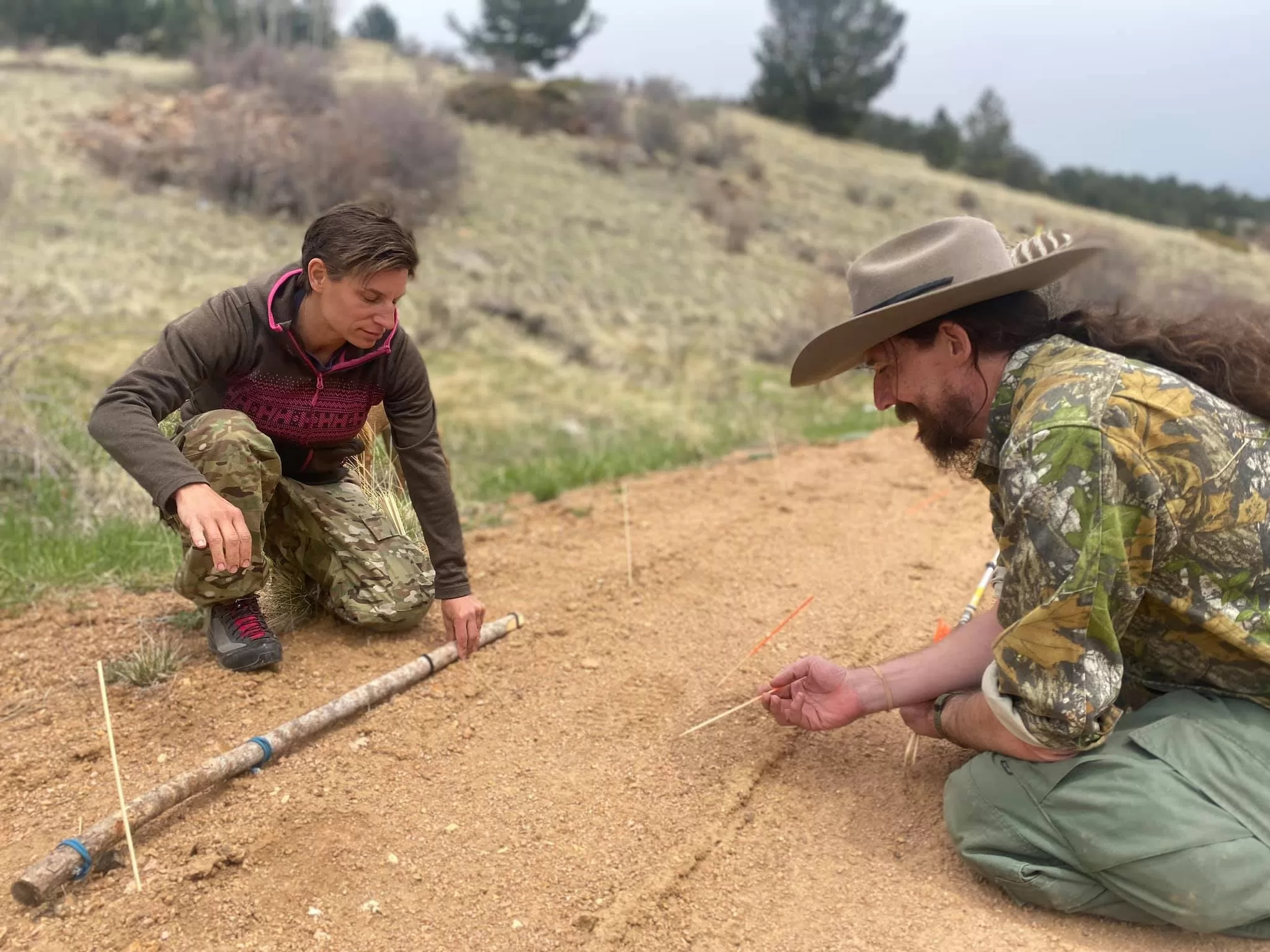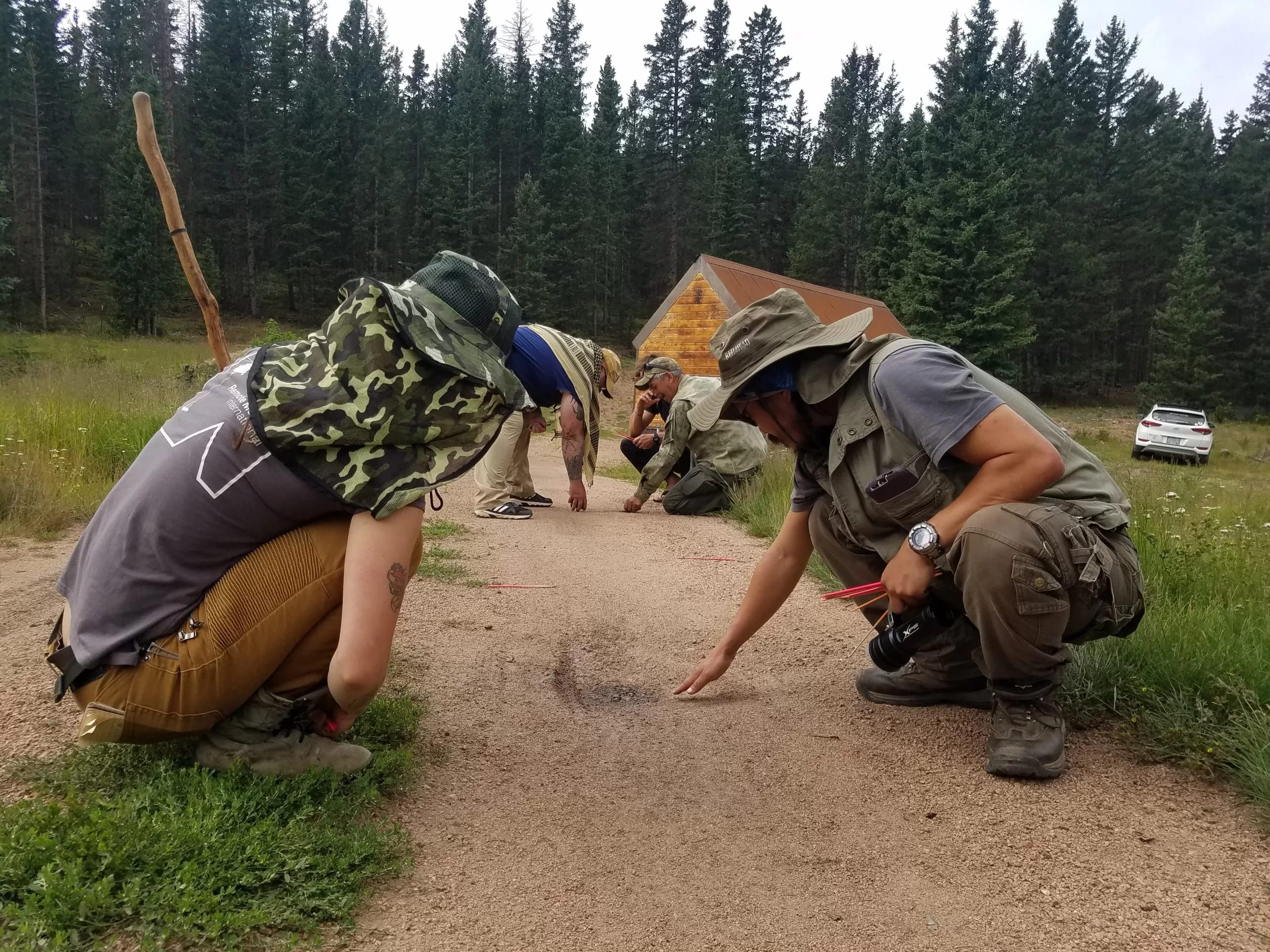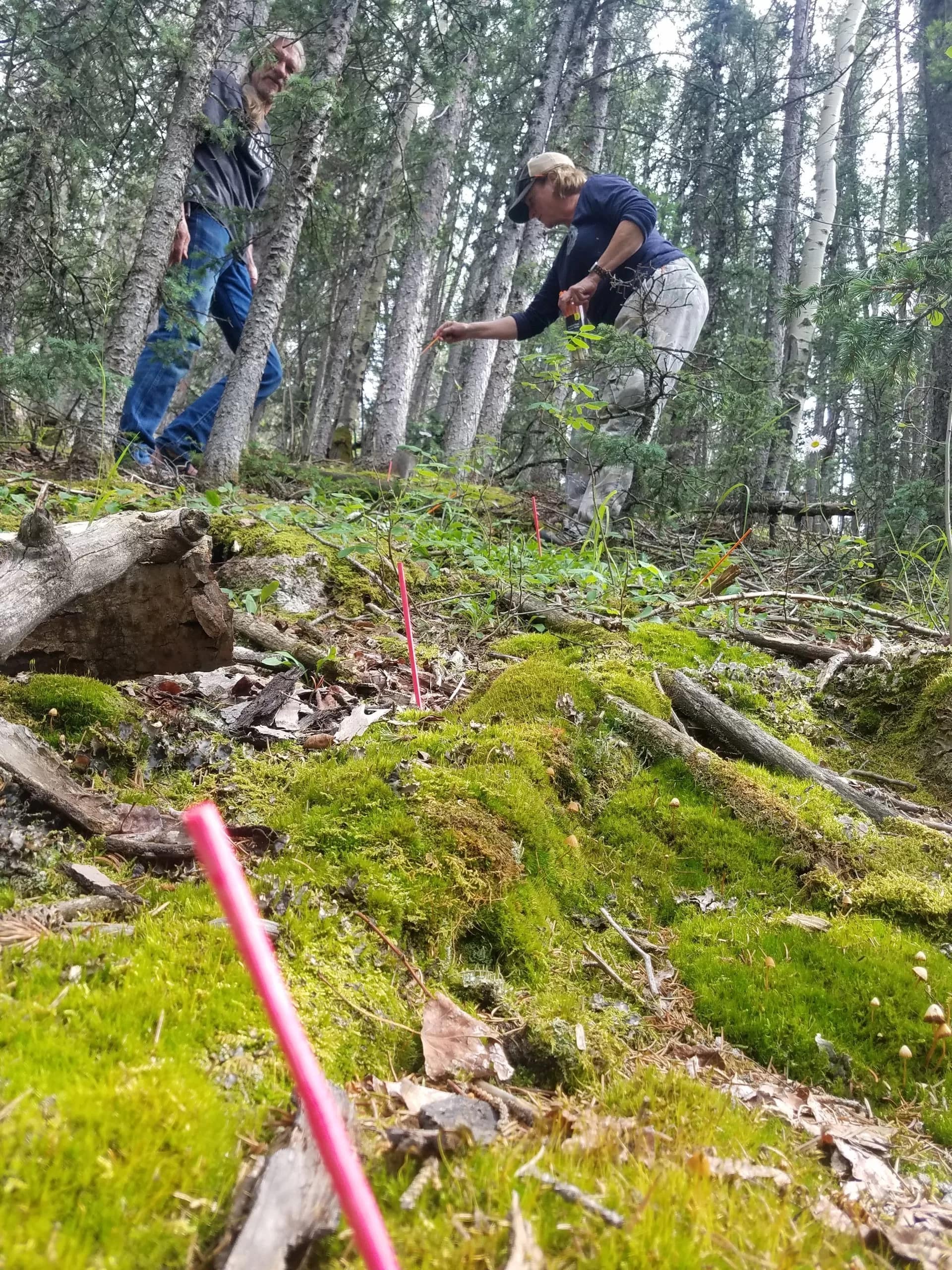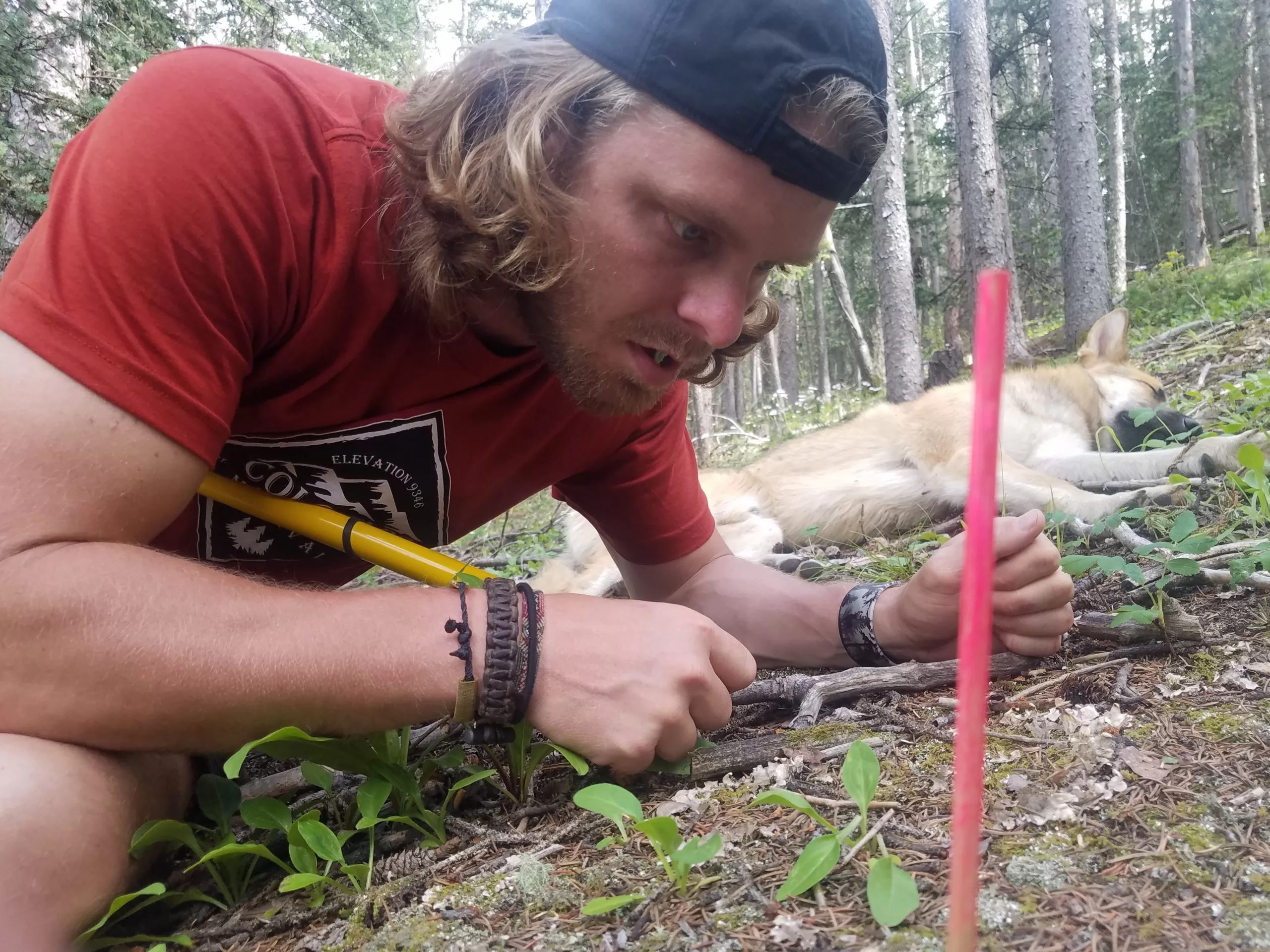SEARCH AND RESCUE – FUNDAMENTALS OF TRACKING
$395.0
Through both classroom and field exercises Search And Rescue (SAR) personnel, along with others, who are tasked with First Responder capabilities, will be instructed in the methods and tactics of tracking lost persons within a wooded, or wilderness environment. Students will be instructed in both individual and team tracking techniques. By the end of the course, students will be able to discern whether the lost person is moving by day or night and/or intentionally avoiding rescuers. Students will have a basic understanding of various tracking techniques and will possess the tools that will allow them to successfully locate tracks in varied terrain.
Dates
July 7-9, 2024
COURSE DESCRIPTION
Through both classroom and field exercises Search And Rescue (SAR) personnel, along with others, who are tasked with First Responder capabilities, will be instructed in the methods and tactics of tracking lost persons within a wooded, or wilderness environment. Students will be instructed in both individual and team tracking techniques. By the end of the course students will be able to discern whether the lost person is moving by day or night and/or intentionally avoiding rescuers. Students will have a basic understanding of various tracking techniques and will possess the tools that will allow them to successfully locate tracks in varied terrain.
TRAINING OBJECTIVES:
At the end of this block of instruction students will be able to work as a member of a SAR tracking team in a wilderness environment while using visual techniques, terrain, and weather conditions to locate tracks and “sign” left by a lost person in passing.
STUDENTS WILL BE INSTRUCTED IN THE FOLLOWING:
1. Duties of the individual tracker
2. Duties of a tracking team member
3. Tracking team communications
4. Command duties and responsibilities
5. SAR team tracking formations
6. Lost track procedures
7. Locating track and “sign” evidence
8. Track aging
This course is highly suitable for Law Enforcement, Forest Rangers, Land Owners, Ranchers, Corrections, SAR, Outdoorsmen, Survivalists, or anybody who loves venturing into the great outdoors.
LENGTH
3 Days / 2 nights
ACCOMMODATIONS
If students do not wish to camp with us, the town of Cripple Creek is a short 15 minute drive from our location and Woodland Park is 30 minutes away. Students will be responsible for making their own reservations with nearby hotels. We do have a central community campfire location with a few designated campsites but mostly offer dispersed camping. Students will be able to drive their car within 100 feet of the main camp and will not have to hike gear in for long distances.
- Shelter Lodging: Students can stay in one of our 20 person GP Medium tents when not running field exercises or may stay in their own tents, campers, vehicles or a primitive shelter. Our tents are complete with wood burning stoves for cold weather conditions. This is a shared tent for all students that wish to use it.
- Sanitation/Hygiene: A portable restroom and potable water will be provided at main camp.
FOOD AND WATER REQUIRED
Water will be provided but students will need to bring their own food. We recommend quick field expedient meals such as freeze dried hiking meals or MRE’s. They can quickly be made at our primitive camps and won’t slow down the learning process. However, students may bring any food that they wish to cook over the campfire or on their own personal camp stove.
Food can be purchased locally at nearby facilities. Walmart and several local eateries are within a reasonable driving distance.
SUGGESTED GEAR LIST
We do not provide students with gear unless they have purchased it from us ahead of time. Not much gear is needed for our courses, though good equipment does speed the learning process up greatly! Gear does not have to be purchased from our store to attend the course, but we recommend survival gear of equivalent quality.
- Serviceable Uniform/Clothing (seasonally appropriate)
- Hiking Boots (broken in)
- Knee pads (highly recommended)
- Short cloth measuring Tape
- Ranger bands, marking tape, and or colored tape
- Binoculars (optional)
- GPS/ Lensatic Compass
- Knife
- Watch
- Flashlight and headlamp with colored lenses
- Backpack
- Individual First Aid Kit (IFAK)
- Hydration System
- Eye Protection (Clear lens eye protection is recommended)
- Wet weather gear (optional)
- 100’ of 550 cord
- Pencil
- Paper
- Gloves (optional)
- Camouflage stick, compact or cream
- Seasonally appropriate hat, underwear, and outerwear
- Good quality insect repellent with Deet (optional)
- Folding Chair (optional)
- Seasonally appropriate equipment to remain overnight in field conditions.
Check Recommended Items List for more details!
If it is still not clear what gear is needed for our survival courses, then we have assembled a complete kit that is still high quality but for a budget friendly price. All the items in this kit were hand selected by our instructors to be the best bushcraft tools on a budget. This survival kit is a useful starter kit that can be used in all of our courses. These are all must have tools at a good price. It’s a great survival kit, bug out kit, go bag, or use it as a solid foundation to build a kit that perfectly fits your needs. With this kit and our training anybody can survive like a king in almost any environment!
NOTE
Due to the different levels of prior experience and knowledge among students in each class, individual outcomes may vary. Weather conditions can also be a factor in changing class content slightly. Nonetheless, our instructors will always endeavor to be as accommodating and consistent as circumstances will allow to ensure students get the best training experience and value for money.
